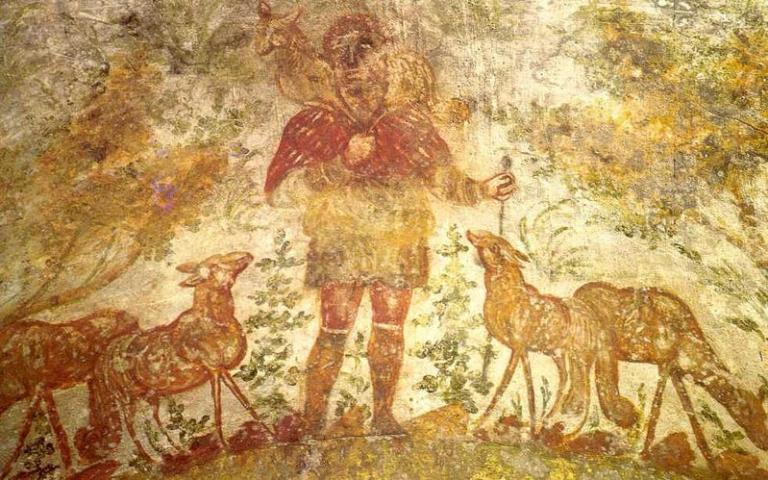
(Wikimedia Commons public domain image)
Compare Luke 15:3-7
1.
Matthew 18:10-11 could be read as supporting the notion of “guardian angels.”
2.
Matthew 18:12-13 and Luke 15:3-7 forcefully illustrate the value that God himself places on every human soul. Absolutely every one.
3.
Thus, it’s not surprising to read, in Matthew 18:14, that “it is not the will of my Father who is in heaven that one of these little ones should perish.”
Which seems a pretty clear refutation, to my simple little mind, of the Calvinist notion that the Lord has decreed salvation for only a small band of the “elect” while willing damnation for the vast majority of humankind who live today and for virtually all who have ever lived — “sinners in the hands of an angry God.” Rather, as 2 Peter 3:9 explains, he’s “not willing that any should perish, but that all should come to repentance.”

Compare Luke 17:3; John 20:23
So much gossip, anonymous internet fault-finding, nastiness, character assassination, pain, and strife would be eliminated if the simple principle declared here were followed!

(Wikimedia Commons public domain)
Christianity was never meant to be a religion of merely isolated piety. Hermits and anchorites are foreign to the New Testament.
Christians are intended to be in fellowship with one another, to worship as congregations, “to bear one another’s burdens, that they may be light” (Mosiah 18:8).

Wikimedia Commons public domain image
Compare Luke 17:4
This teaching is difficult, even though it’s quite easy to understand.
One thing that it doesn’t entail, though, in my view, is the idea that we need to keep coming back to be sinned against, over and over again.
This isn’t a doctrine of “shunning,” but it’s also not a commandment to be a fool.
Jesus wasn’t an idiot, and he wasn’t asking his disciples to be idiots, either. Just saints. Which is rather a different thing.

(Wikimedia Commons public domain image.)
It’s really easy to deride the folly and blatant hypocrisy of this unmerciful servant.
But how many of us, if we examined ourselves honestly and accurately, could escape pleading guilty to the charge of having a double standard, judging others while hoping to escape judgment ourselves, or, at least, to be treated with a charity that we deny to others?
Since slanderous and unjust online accusations are very often leveled against me — multiple times daily, on most days — I want to extend this explicitly to online commenting: Are we harshly judgmental of others, severely condemning, in a way that would cause us deep pain and grief — or, at a minimum, that would damage our public reputations — if it were done to us? Is it a culpable failure of imagination? Do we sometimes forget that public figures, or people online, are actual human beings, with families and personal lives? My suspicion is that many people who comment on websites and message boards and in response to online newspaper and magazine articles do forget. (I hope that they don’t behave so badly in real life, face to face with those they assault.) But it should not be forgotten.












